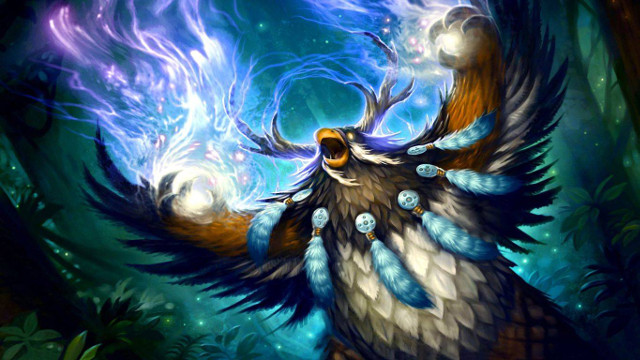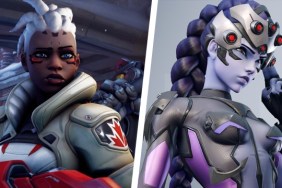[Editor’s Note: I have updated each class section with a note about how the class is performing after a few months of Legion. Many things have changed during the past four months since this guide was written, so this additional information may help you in your decision making. You can read the additional information at the bottom of each class section.]
World of Warcraft: Legion is right around the corner. While you’ll be waiting until August 30th to get your hands on the new expansion, its pre-patch is rumored to be releasing on July 17th, which isn’t too far away.
I’ve been playing the beta and PTR for the past several weeks with a focus on testing and learning about each of the classes and their specs. Let’s be clear, Blizzard wasn’t kidding around when it said that this expansion will have the single largest impact on class design that the 12 year old World of Warcraft has ever seen. In most cases, this has resulted in compelling flavor that will make the game more enjoyable to play than during the past few years of decline. But not every class spec is a winner.
In this feature I will share what I believe to be the 10 most exciting classes in Legion. A few notes before we get started:
- In general melee tend to feel like they have improved more drastically than ranged classes thanks to new animations. There are some fancy new spell effects, which in the case of Fire Mage are particularly attractive, but melee have seen much more significant alterations in visual design.
- Numbers are still being tweaked on a weekly basis. In this feature I will not make class balance a major component of the rankings, as the classes will move up and down the totem pole during the next few weeks.
- I have chosen not to list damage or healing numbers for abilities since they are changing often during beta. I will instead use terms such as “mild”, “moderate”, and “massive” so that you have an idea of how profound their effect is.
- This list will go in alphabetical order.
- To see how each DPS spec is performing in raids go here. Although numbers will change, we will update the article to reflect changes in data. Avoiding low DPS specs is usually a good idea unless you particularly enjoy playing the spec.
Let’s get to it.
Balance Druid
Artifact Ability: Moon – Deals Astral damage to the target and empowers [New, Half, Full] Moon to become [New, Half, Full] Moon.
Primary Abilities and Cooldowns:
- Moonfire – A quick beam of lunar light burns the enemy for Arcane damage and then additional Arcane damage over 16 sec.
- Lunar Strike – Call down a strike of lunar energy, causing Arcane damage to the target, and Arcane damage to all other enemies within 5 yards.
- Starsurge – Launch a surge of stellar energies at the target, dealing Astral damage.
- Celestial Alignment – Celestial bodies align, increasing the damage of all your spells by 30%, and increasing the Astral Power generated by Lunar Strike and Solar Wrath by 50%. Lasts 15 sec.
- Innervate – Infuse a friendly healer with energy, allowing them to cast spells without spending mana for 10 sec.
Biggest Changes:
- Eclipse Removal – The controversial Eclipse system is gone. You can now freely cast spells, although there is a rhyme and rhythm to them if you want to achieve the best results. Due to this, it isn’t completely clear what the rotation is, but with practice you can learn the new priority system.
- New Moon – The artifact ability is an especially important one in the case of the Balance Druid. It effectively functions as a three-tier combo system where you need to cast the first spell to get to the second, and the second spell to get to the third. Each level, from New Moon to Half Moon and then Full Moon, has a longer cast time but dishes much more damage. Each tier has a pretty spell effect, too.
Why You Should Play It: Balance Druid finally has a clean damage rotation. Removal of the Eclipse system allows it to cast spells with great freedom, requiring fast-paced decision making on the fly. It’s a joy to play as it has a great balance of DoT, single-target, and AoE damage that aren’t unnecessarily gated behind systems. Its spell effects are themed around astronomy, deviating it from other casters. As with other Druid specs, it has received visual upgrades to its forms, most notably with Moonkin. It has also been given several fantastic utility skills and talent choices that allow it to function well as a hybrid by bringing abilities such as Innervate and potent heals to group environments.
[Legion Launch Update: Balance Druid is performing well in early Legion. Its style of play hasn’t been tampered with during the final iterations of Legion Beta. As such, it is still very fun to play. It is also effective in both PvE and PvP. Its DPS is above average, with several options for AoE. It also tops battleground damage charts with strong spread pressure.]
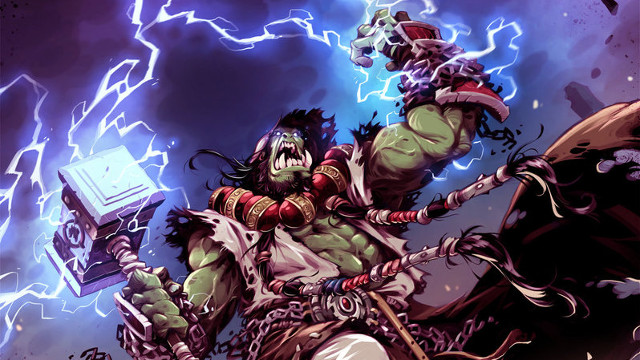
Enhancement Shaman
Artifact Ability: Doom Winds – Unleashes the inner power of the Doomhammer, causing all auto attacks to trigger Windfury, and increasing damage dealt by Windfury for 6 sec.
Primary Abilities and Cooldowns:
- Rockbiter – Assaults your target with earthen power, dealing Nature damage. Generates 15 Maelstrom.
- Stormstrike – Energizes both your weapons with lightning and delivers a massive blow to your target, dealing a massive amount of Physical damage. Requires 40 Maelstrom.
- Heroism – Increases haste by a moderate amount for all party and raid members for 40 sec. Allies receiving this effect will become Exhausted and unable to receive benefit from Heroism or Time Warp again for 10 minutes.
- Astral Shift – Shift partially into the elemental planes, taking moderately less damage for 8 sec.
Biggest Changes:
- Maelstrom – Enhancement Shaman now functions on a Maelstrom system, which is similar to Warrior’s Rage. You will use Rockbiter to build up this resource before deciding to spend it on Stormstrike, Frostband, Crash Lightning, or a number of other powerful attacks. It plays much better into the playstyle of Shaman than cooldown and mana restrictions.
- Totem Removal – Totems have become a much less vital element of the Enhancement Shaman (they’re still important for Restoration and Elemental). Instead of relying on quirky totems such as Searing Totem, the majority of your damage and utility will originate from your character. That said, you will have the option to obtain one of several totems through talents. In the case of the totems available to Enhancement (i.e. Lightning Surge Totem), they can be placed where you’d like rather than spawning next to your character automatically.
Why You Should Play It: Enhancement Shaman is very popular in the Beta and PTR for its beautiful spell effects which include fire, lightning, and ice. It feels and looks like a master of the elements (i.e. Thrall), something Enhancement Shaman players have wanted for many years. Thankfully, it’s also a joy to play. The new Maelstrom mechanic fits perfectly into the class, allowing it to build resource and then expend it on a number of options which range from AoE to single target damage and self-buffs. It also serves its role as a hybrid well with several utility options that groups welcome.
RELATED: Legion Review By a Vanilla WoW Veteran
[Legion Launch Update: Enhancement Shaman is a top DPS spec in Emerald Nightmare. However, in PvP it currently faces issues with mobility and control. Many consider it exciting to play, but it is an extremely high skill cap spec that can be frustrating to play.]
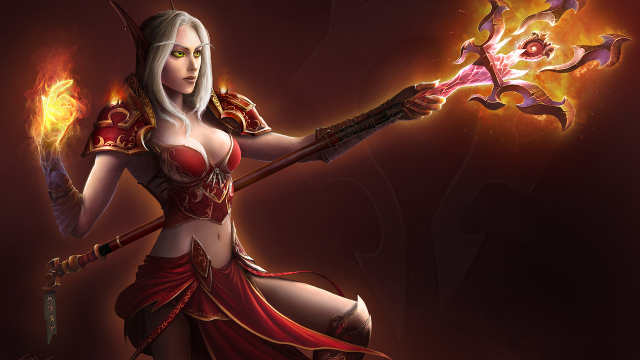
Fire Mage
Artifact Ability: Phoenix’s Flames – Hurls a Phoenix that causes fire dmage to the target and splashes Fire damage to other nearby enemies. This damage is always a critical strike.
Primary Abilities and Cooldowns:
- Fireball – Throw a fiery ball that causes moderate Fire damage.
- Pyroblast – Hurls an immense fiery boulder that causes massive Fire damage.
- Combustion – Engulf yourself in flames, increasing your critical strike chance massively for 10 seconds. Also grants you Mastery equal too your Critical Strike stat.
- Time Warp – Warp the flow of time, increasing haste by a moderate amount for all party and raid members for 40 seconds. Allies will be unable to benefit from Bloodlust, Heroism, or Time Warp again for 10 seconds.
Biggest Changes:
- RNG Removal – Fire Mage’s list of skills are very familiar, but they have been reworked. The main skills, such as Combustion, tend to serve very specific functions that are dependable, rather than relying on convoluted luck. This allows the class to perform more consistently while still being a critical strike oriented spec.
- Inferno Blast – This ability is no longer on global cooldown, allowing it to be weaved into your rotation at will. This is important for the Fire Mage, which tends to have relatively poor mobility and long cast times.
Why You Should Play It: Fire Mage is a great fit for players who enjoy ranged characters capable of putting up big numbers. It is more focused than ever on powerful attacks that critically hit often. There’s less complexity in terms of skill design, such as Combustion’s rework, allowing you to more readily choose which skill to cast at any given time. It’s also seen major benefit in spell effect rework, resulting in huge, fiery explosions that catch the eye. The same applies to Combustion, which now sets your entire character on fire. As a cost to all this damage, the class has very little in terms of survivability. As they say, the best defense is a good offense.
[Legion Launch Update: Fire is in a good place for Legion. It is squishy but has great cooldowns available as well as remarkable burst potential. This makes it not only effective in small and large scale PvP situations, but DPS charts where it can compete against every spec.]
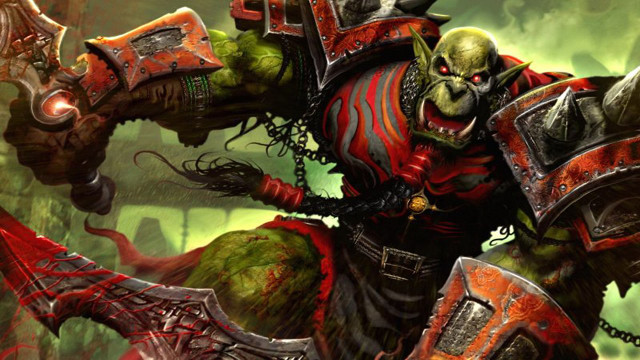
Fury Warrior
Artifact Ability: Odyn’s Fury – Unleashes the fiery power of Odyn bestowed upon Warswords, dealing Fire damage and an additional DoT over 4 sec to all enemies within 20 yards.
Primary Abilities and Cooldowns:
- Bloodthirst – Assault the target in a bloodthirsty craze, dealing Physical damage and restoring health. Generates 10 Rage.
- Raging Blow – A mighty blow with both weapons that deals a moderate amount of damage. Only usable when enraged. Generates 5 Rage.
- Rampage – Enrages you and unleashes a series of 5 brutal attacks over 2 seconds for a massive amount of Physical damage. Requires 85 Rage.
- Battle Cry – Lets loose a battle cry, granting massively increased critical strike change for 5 sec.
- Enraged Regeneration – Reduces damage taken and Bloodthirst restores additional health. Usable while stunned. Lasts 8 sec.
Biggest Changes:
- Enrage – The gameplay flow entails using Bloodthirst and hoping for a critical strike in order to enter Enrage. Enrage unlocks Raging Blow and increased auto-attack damage, allowing you to more quickly build up Rage to use Rampage and other powerful attacks. The gameplay loop feels exciting and makes the Fury Warrior feel properly ferocious.
- Furious Slash – A new ability has been added to the rotation which strikes with your off-hand weapon, effectively increasing your Bloodthirst’s effectiveness. It layers perfectly into the rotation helping to reduce down time while you’re busy waiting for Bloodthirst to critically strike.
Why You Should Play It: The Fury Warrior is a rewarding melee DPS fighter. The new Enrage mechanic results in a dynamic rotation that leads into exciting moments of gameplay with lethal damage output, not too dissimilar to Fire Mage. It has some respectable self-healing capability to keep it in a fight long enough to make sure that enemies remember not to mess with Fury Warriors. It’s argued by many that the Warrior has the best of the new animations coming in Legion, making it appear flashy and intimidating on the battlefield.
[Legion Launch Update: Fury saw some late Legion Beta nerfs and is no longer the monster it used to be. It struggles in PvP where Arms does a little better. It is also currently performing poorly in raids. As such, it may be worth avoiding for now in favor of Arms, which thankfully is doing very well..]
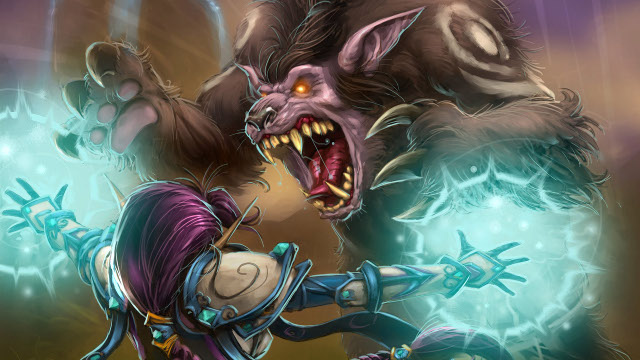
Guardian Druid
Artifact Ability: Rage of the Sleeper – Unleashes the rage of Ursoc for 10 sec, preventing some damage you take and reflecting Nature damage back at your attackers.
Primary Abilities and Cooldowns:
- Mangle – Mangle the target for Physical damage. Deals 20% additional damage against bleeding targets. Generates 6 Rage.
- Maul – Maul the target for moderate Physical damage. Requires 20 Rage.
- Stampeding Roar – Lets loose a wild roar, increasing the movement speed of all friendly players within 10 yards for 8 sec.
- Frenzied Regeneration: Heals you for a large amount of damage taken over the last 5 sec over 3 sec.
Biggest Changes:
- Bear Form – Guardian and Feral Druids will stand out more than ever before with a variety of forms available through the Artifact system. This will serve as the first time that Druids in these two specs will be able to show off their level of progression while in bear/cat form, a welcomed addition.
- Thrash – This AoE attack now has a bleed element that can be stacked up to three times. In addition, it has a chance to reset the cooldown on Mangle, effectively mixing up the rotation.
Why You Should Play It: While Blizzard has been busy trying to figure out how to make the other tanks fit well into the overall meta, the Guardian Druid has been set in stone and leading the pack for months. It’s changed a lot over the years, and is now a highly resilient beast that has a solid mixture of AoE, single target damage, ranged, and survivability options. It also has several visual styles offered by the artifact system, a huge addition for players who want to stand out while in Bear Form. It’s a simple, albeit remarkably effective class with a rewarding rotation that the other tanks aspire to be.
[Legion Launch Update: Guardian is still a top-tier tank for Legion. It is highly desired and has some neat changes coming in the expansion, including its artifact forms. PvP tanks aren’t particularly viable outside of rated BGs, so your mileage may vary.]
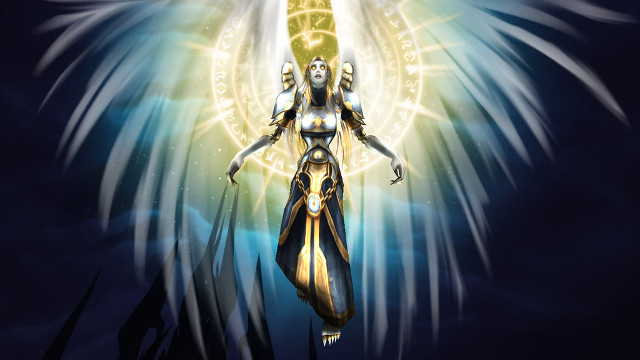
Holy Priest
Artifact Ability: Light of T’uure – Applies Light of the Naaru to the target, healing for a moderate amount of health and increasing all healing you do to that target by a moderate amount for 10 seconds. Maximum 2 charges.
Primary Abilities and Cooldowns:
- Heal – A slow but efficient spell that heals an ally for a moderate amount.
- Holy Word: Serenity – Perform a miracle, healing an ally for a massive amount of health.
- Prayer of Mending – Places a ward on a party or raid member that heals them for a small amount of healing the next time they take damage, and then jumps to another party or raid member within 20 yards. Jumps up to 5 times and lasts 30 seconds after each jump.
- Divine Hymn – Heals all party or raid members within 40 yards for a massive amount over 8 seconds, and increases healing done to them by a mild amount for 8 seconds. Healing increased by a massive amount when not in a raid.
Biggest Changes:
- Holy Word – The Chakra system was an attempt to allow the Priest to function well in various roles. However, it wasn’t very smooth and required stance toggling. That has been removed in favor of something much more natural. Essentially, you will reduce the cooldown of a powerful spell whenever you use a spell in one of three schools: single target healing, AoE healing, and damage. This adds climax to a class that for a long time has been relatively monotone.
- Shadow Removal – In order to play into the fantasy of Holy Priest, all Shadow spells have been removed. Everything is now focused on being Holy oriented, including its offensive options which include Smite, Holy Fire, and Holy Nova.
Why You Should Play It: Holy Priest is a well-tuned healer that excels in keeping a group alive. Thematically, it excels with a variety of skills that portray the art of Holy magic, from large angelic wings, to glorious golden spell effects. With these spells it is able to instantaneously transition from single target healing to AoE healing and effective damage thanks to an intuitive Holy Word system. While several other healing specs currently struggle to feel refined, the Holy Priest is ready to tackle the challenges that await in the next expansion.
[Legion Launch Update: Both Holy and Disc Priest are in a bad spot for early Legion. While I personally consider Holy very fun to play, it will struggle for a few weeks. If you are concerned about this, I recommend trying out Restoration Shaman, Mistweaver Monk, or Holy Paladin.]
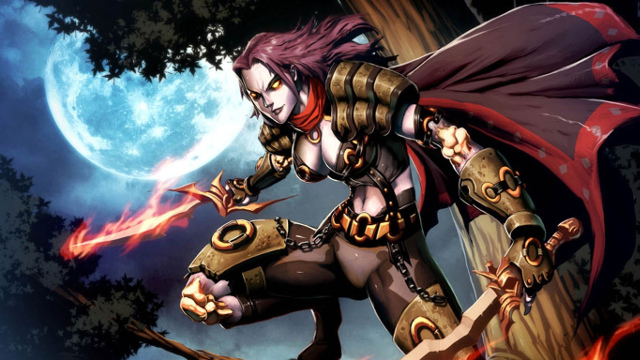
Outlaw Rogue
Artifact Ability: Curse of the Dreadblades – Invoke the Curse of the Dreadblades, causing each Saber Slash or Pistol Shot to fill your combo points. However, The Dreadblades will consume some of your current health when you use a finishing move for the next 12 sec.
Primary Abilities and Cooldowns:
- Saber Slash – Viciously slash an enemy, causing moderate Physical damage and awarding 1 combo point. Saber Slash has a chance to strike an additional time, granting additional damage and a combo point, as well as making your next Pistol Shot free.
- Between the Eyes – Finishing move that deals damage with your pistol and stuns the enemy. Critical strikes with this ability deal four times normal damage.
- Blade Flurry – While active, your melee attacks also strike all nearby enemies for moderate damage, but your energy regeneration is reduced by a mild amount. Lasts until canceled.
- Crimson Vial – Drink an alchemical concoction that heals you for a significant portion of your maximum health over 6 sec.
Biggest Changes:
- Pirate Theme – Combat has been eliminated from the game, although remnants of it can be found throughout the Outlaw Rogue’s toolkit. In its stead is a class that has pirate-inspired skills, including a pistol, dice, cannon bombardment, grappling hook, and the ability to bribe NPCs. Playing one, you’ll feel right at home at the Deadmines or Booty Bay.
- Roll the Bones – In place of Slice and Dice (unless you talent otherwise) is Roll the Bones. This finisher rolls six dice and provides one to six of the potential buffs at random. The buffs vary from not so great to controversially overpowered, resulting in this spec being heavily RNG oriented.
Why You Should Play It: Some players dislike Outlaw Rogue in its current state due to how Roll the Bones functions, which is extremely random resulting in inconsistency. However, the class is undeniably fun to play, something that has earned it accolades from many beta tester. It looks amazing with its pirate-themed skills and artifact swords that benefit tremendously from the new animations, but it’s also effective. Outlaw Rogue has an incredible amount of control with Blind, Gouge, a ranged stun, and more, something that is uncommon among most classes in Legion. Thus, with some tuning it will likely be effective while also being one of the most exciting classes, a huge win for the Rogue class after its struggles in Warlords of Draenor.
[Legion Launch Update: Rogue in general is very powerful in early Legion. All three specs, including Outlaw, are very competitive in PvP. In terms of DPS, Outlaw falls behind the other two specs, but still holds its own against other classes.]
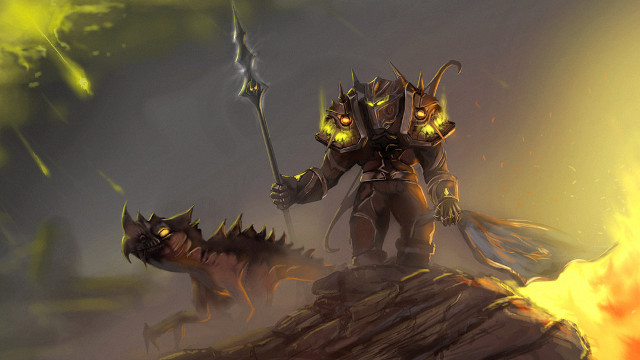
Survival Hunter
Artifact Ability: Fury of the Eagle – Furiously strikes all enemies in front of you, dealing Physical damage. Damage increased by Mongoose Fury.
Primary Abilities and Cooldowns:
- Raptor Strike – A vicious slash, dealing moderate Physical damage.
- Mongoose Bite – Attempts to sever the target’s limbs with a brutal attack that deals moderate Physical damage and grants you Mongoose Fury. Mongoose Fury increases Mongoose Bite damage for a moderate amount for 12 seconds, stacking up to 6 times.
- Aspect of the Eagle – Grants you and your pet increased Critical Strike chance on all abilities, and increases your chance to gain charges of Mongoose Bite. Lasts 10 sec.
- Exhilaration – Heals you for 30% and your pet for 100% of maximum health.
Biggest Changes:
- Melee – The Survival Hunter is entirely melee based, with a couple medium-range skills to supplement the playstyle. In a way, it plays like Arms Warrior, but with emphasis on Hunter class fantasy.
- Traps – Survival Hunters now have exclusive access to traps. These traps function relatively similar to past iterations, but have been altered to fit the new playstyle. For example, Frost Trap has become Tar Trap, a 30 second cooldown that is used for its AoE slow effect.
Why You Should Play It: Survival Hunter is a successful rework of a spec that has been confusing and unfocused since launch. For the first time since vanilla the spec has an armada of melee attacks that it employs with its massive two-handed polearm. As with Unholy Death Knight, you will try to get into the face of your opponent along with your pet, and deal high damage while controlling the battlefield with cooldowns. It is surprisingly fun and manages to fulfill the Hunter fantasy, making it a unique melee option.
RELATED: Is Legion One Of WoW’s Best Expansions?
[Legion Launch Update: Hunter is struggling in terms of damage early on in Legion. Many have noted that playing a melee is a disadvantage, and for this reason Marksmanship will likely be more desirable by groups including raid guilds. Survival also has a tough time in PvP where it isn’t much of a threat, unlike Beast Mastery which has better tools. You may want to reconsider this spec unless you find it as fun to play as I do.]
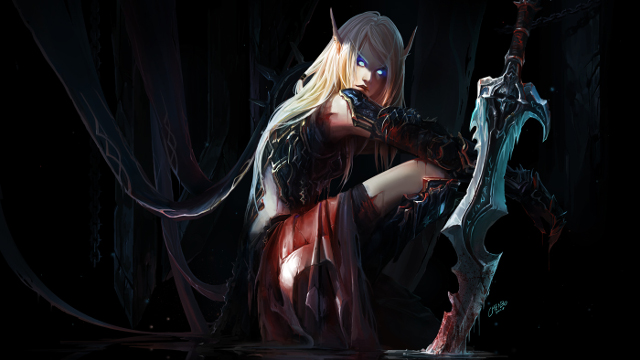
Unholy Death Knight
Artifact Ability: Apocalypse – Strikes the enemy, dealing Physical damage and bursting all Fetering Wounds on the target, summoning a member of your Army of the Dead for 15 sec for each stack of Festering Wound.
Primary Abilities and Cooldowns:
- Festering Strike – Deals Physical damage and infects the target with 2 to 4 Festering Wounds.
- Scourge Strike – An unholy strike that deals mild Physical and Shadow damage, and causes 1 Festering Wound to burst.
- Dark Transformation – Transform your ghoul into a powerful undead monstrosity for 20 sec. The ghoul’s abilities are empowered and take on new functions while the transformation is active.
- Wraith Walk – Sidestep into the Shadowlands, breaking Root effects and increasing your movement speed for 3 sec. During this time all movement-impairing effects are suppressed but any action will cancel the effect.
Biggest Changes:
- Runes – All three Death Knight specs now only have one rune type instead of three (four if you include Death Runes). This is a massive change that has improved quality of life by allowing abilities to become available consistently with no unnecessary resource complexity.
- Festering Wound – A new system is in place which allows you to apply several stacks of this new debuff type on an opponent by using Festering Strike. If you strike the opponent with Scourge Strike while they have Festering Wound on them, additional damage will be dealt.
Why You Should Play It: The Unholy Death Knight is much more enjoyable to play than in its current form on live. The Festering Wound combo-style system works well, and Blizzard has done away with the Shadow Infusion system in place of a static one minute cooldown on Dark Transformation. The DoT system has also been streamlined, always applied by using Outbreak, which now has no cooldown. More than anything, Unholy Death Knight fulfills the class fantasy successfully by feeling and appearing menacing supplemented by powerful animations.
[Legion Launch Update: Unholy was recently hit by both number and a Clawing Shadows nerf. Despite this, it is still one of the best specs in early Legion. It is ferocious in PvP with strong spread pressure, and also does very well on damage charts.]
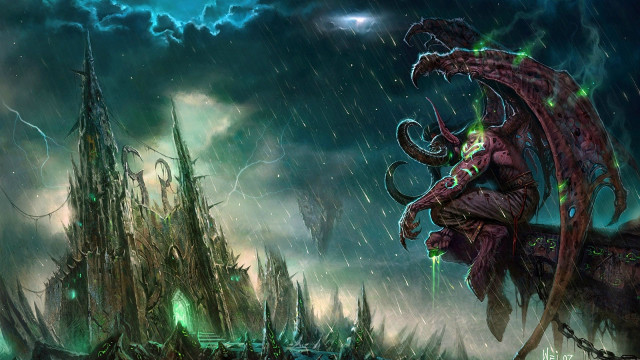
Vengeance Demon Hunter
Artifact Ability: Soul Carver – Carve into the soul of your target, dealing moderate Fire damage and an additional mild amount of Fire damage over 3 seconds. Immediately shatters 2 Lesser Soul Fragments from the target and 1 additional Lesser Soul Fragment every 1 second.
Primary Abilities and Cooldowns:
- Demon’s Bite – Quickly attack for mild Physical damage. Generates 20 to 30 Fury.
- Chaos Strike – Slice your target for moderate Chaos damage. Critical strikes refund 20 Fury. Costs 40 Fury.
- Fel Rush – Rush forward, incinerating anything in your path for mild Chaos damage. 2 charges.
- Sigil of Flame – Place a Sigil of Flame at the target location that activates after 2 seconds. Deals low Fire damge, and an additional low Fire damage over 6 seconds, to all enemies affected by the sigil.
- Metamorphosis – Transform to demon form for 20 seconds, increasing current and maximum health by 30%.
Why You Should Play It: Demon Hunter is the new class in Legion. It excels at mobility at a time when movement is being stripped from every other class. It will be able to get around the battlefield quickly and pressure enemies, diverting attention toward him or her. The Vengeance Demon Hunter survives by collecting Soul Fragments dropped from foes and by being remarkably difficult to lock down and hit. For anyone who thinks that Illidan is a cool character, the Demon Hunter is an attractive option that comes equipped with the one-of-a-kind glaive.
[Legion Launch Update: Vengeance is still one of the tougher tanks to play. Because of this, some players have complained that it doesn’t perform as well as the more passive mitigation oriented tanks like the Guardian Druid. That said, it is widely considered very fun to play and is still desired for groups. Though, it is very important to note that Demon Hunter only has two specs available, and therefore is a less desirable long-term main.]
Check Out More WoW: Legion Coverage On GameRevolution:
These Are the Oldest Known Screenshots of World of Warcraft
-
The Oldest Known Vanilla WoW Screenshots
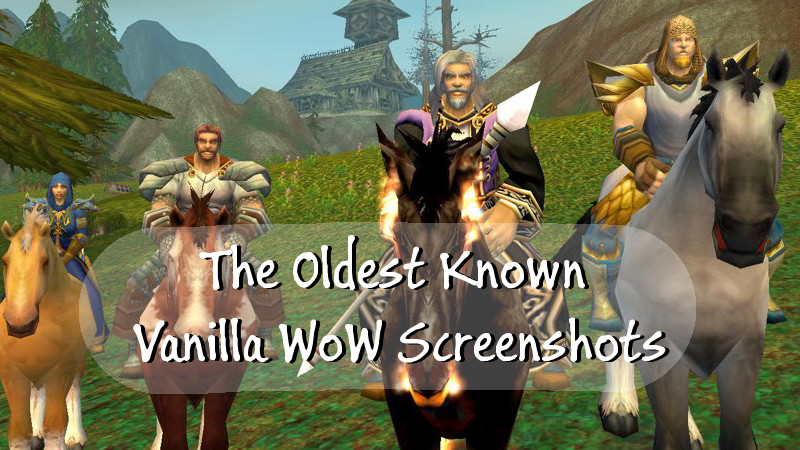
-
Early Level
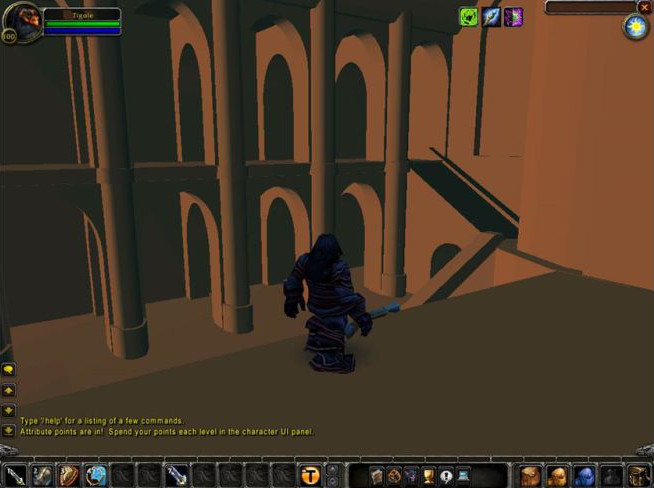
An early level without textures. Notice the character name. -
Character Creation
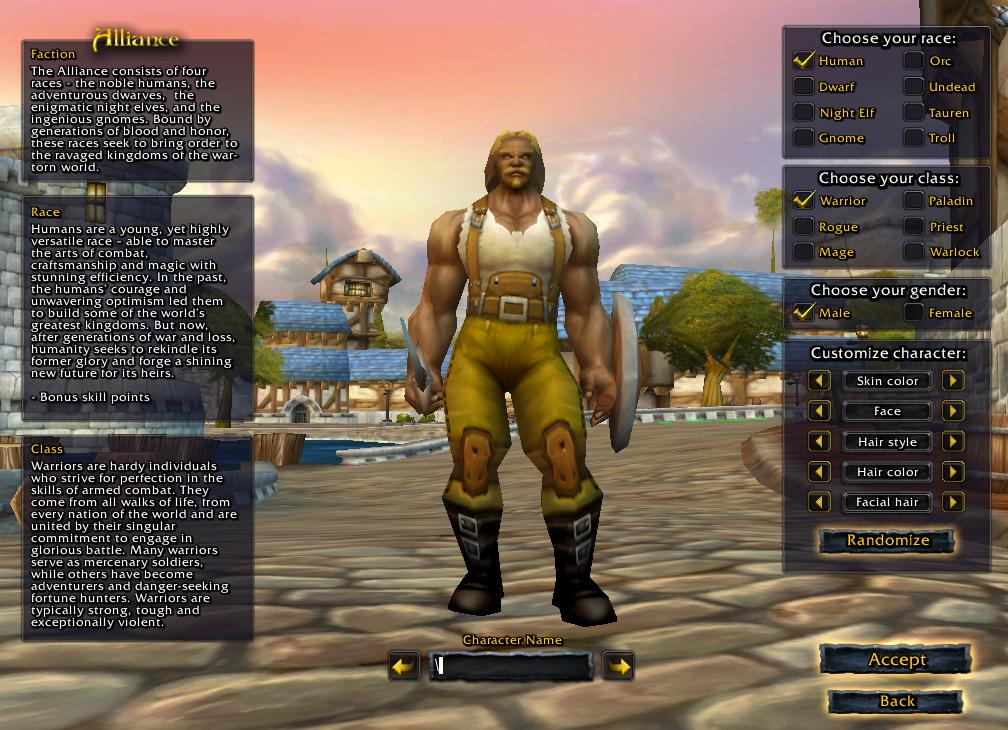
It's not much different than now, although the menu elements are on opposite sides. -
Cairne Gone Crazy
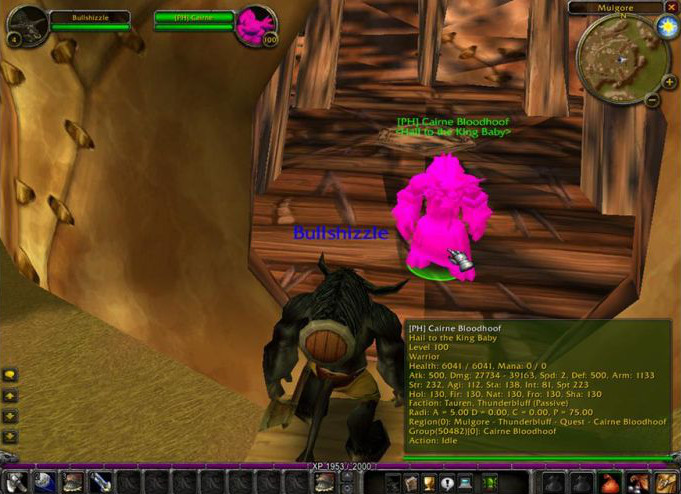
It was Cairne Bloodhoof's birthday. -
The Birth of Human
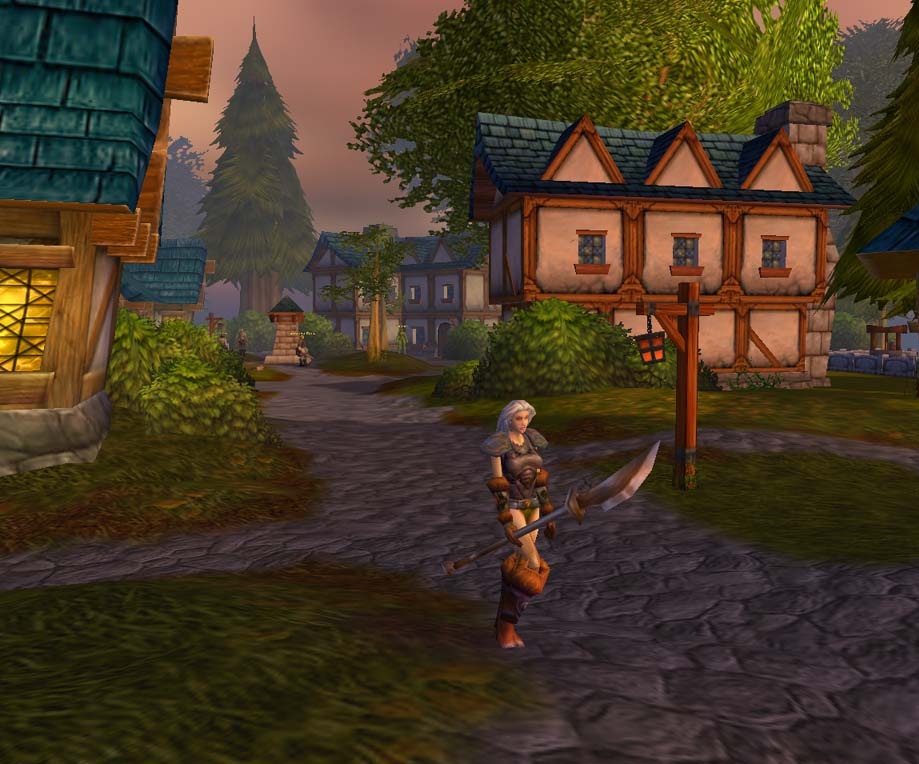
The biggest difference is that nobody uses polearms anymore. -
Atari Map
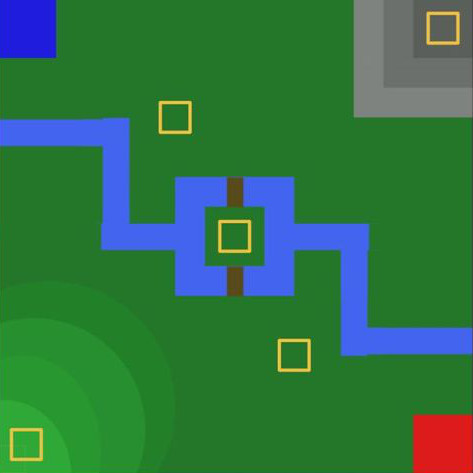
"The Atari Map", an early layout of Arathi Basin. -
Warcraft 3 Engine
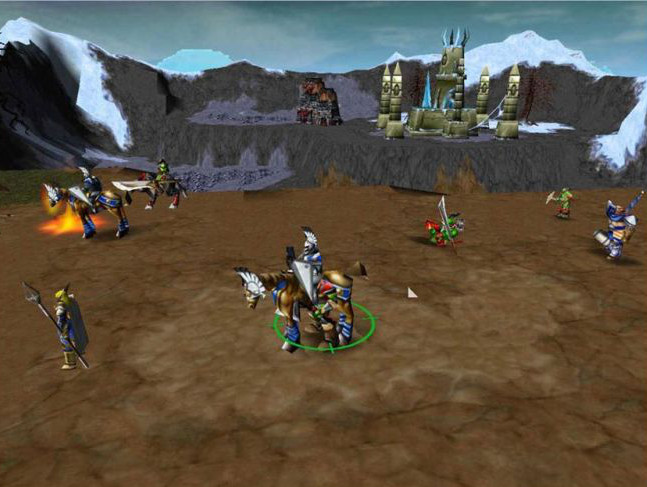
This is the earliest existing screenshot of WoW using the Warcraft 3 engine. -
Deadmines
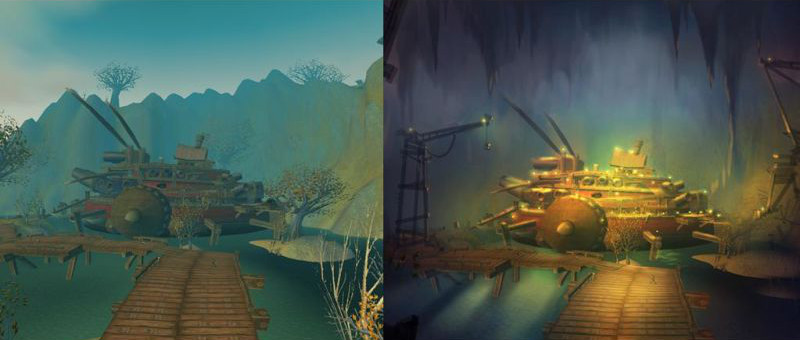
The Juggernaut from Deadmines was originally outside. -
Westfall
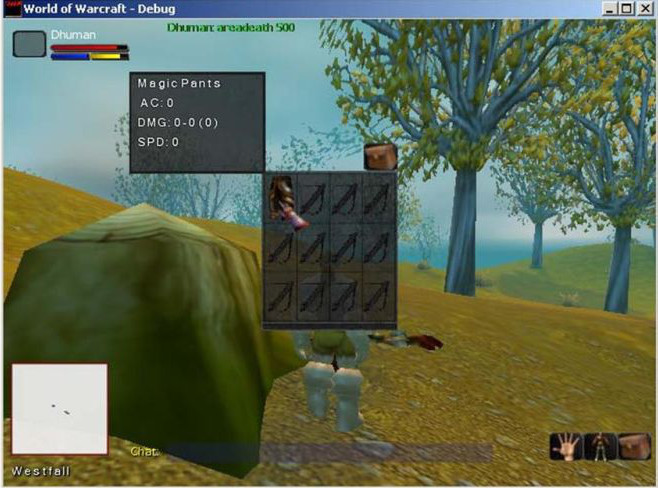
This is what Westfall looked like in early 2000. -
Female Troll
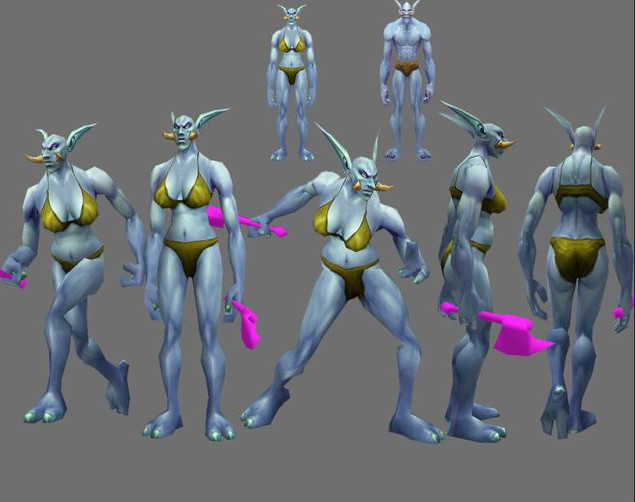
Female Trolls were much more horrifying back then. -
Equipment Menu
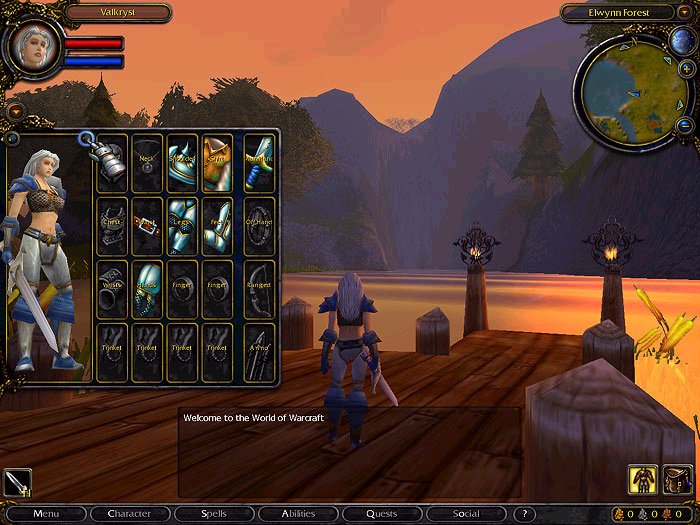
It almost looks like a mobile game. -
Spellbook
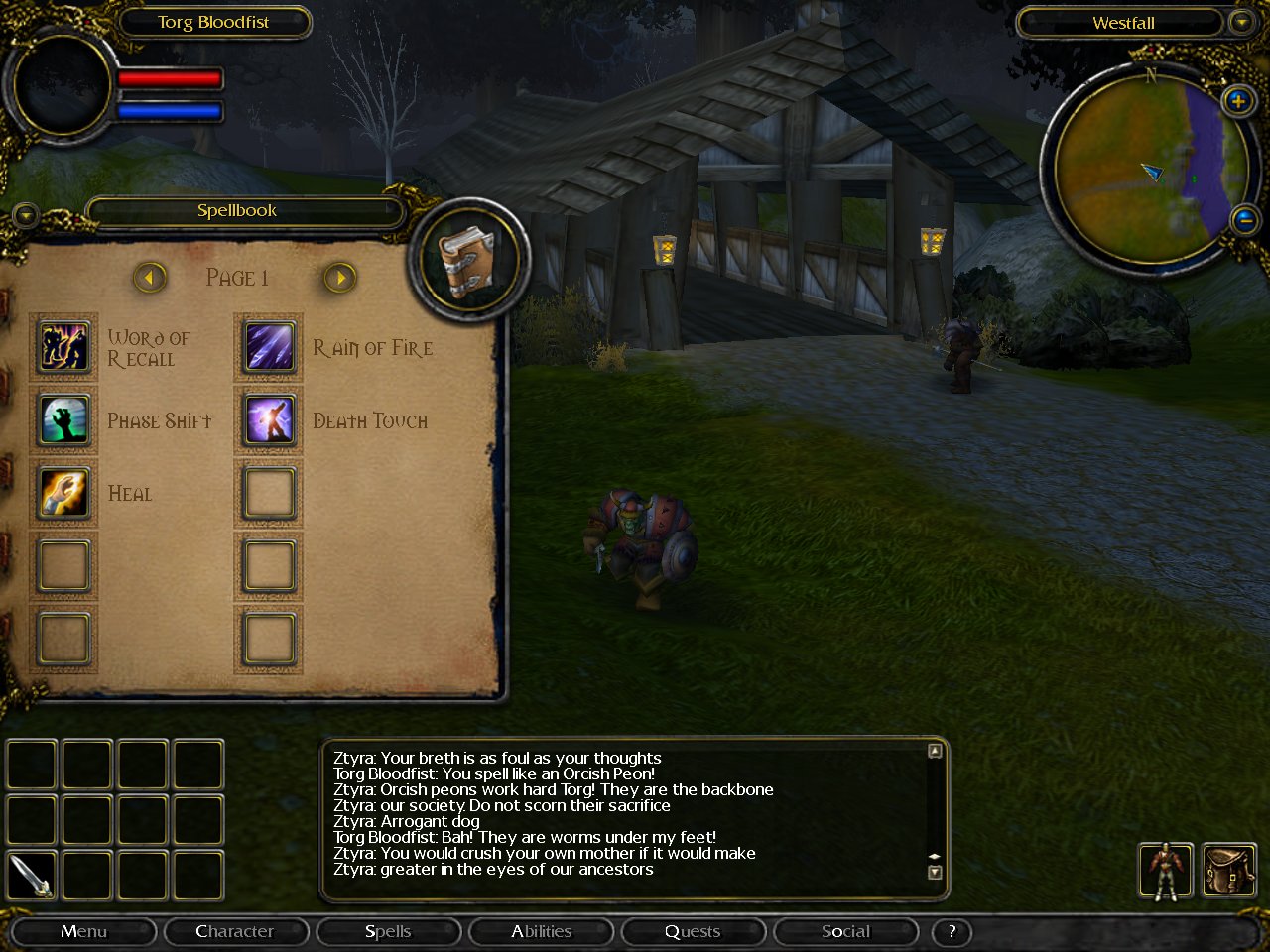
The Spellbook has gone through many iterations. This is just one of them. -
Arathi Layout
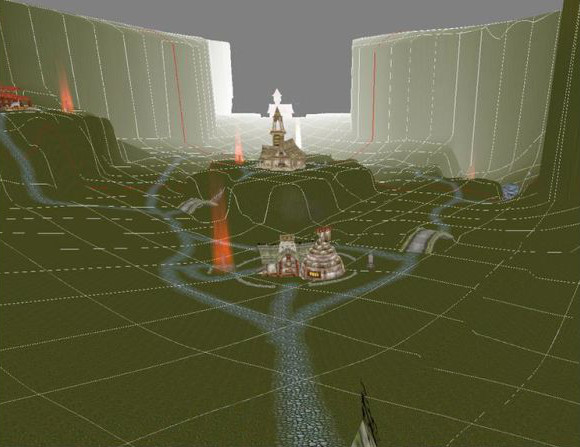
After the Atari Map was completed for Arathi Basin, Jim Chadwick began laying out the level in WoW edit. -
Circa 1999
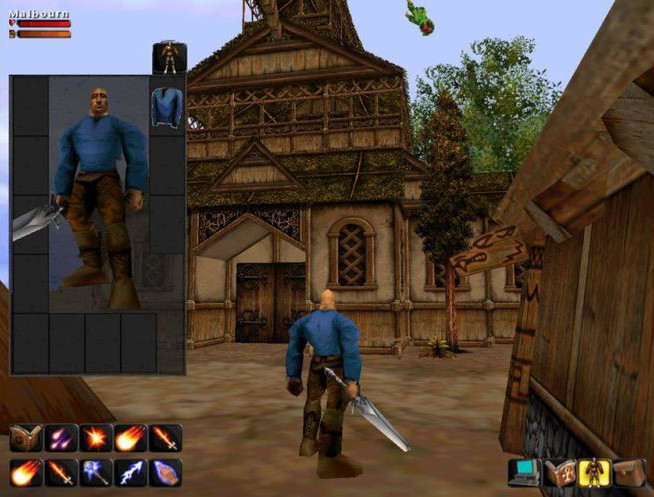
World of Warcraft was unrecognizable in 1999. -
Races in 2000
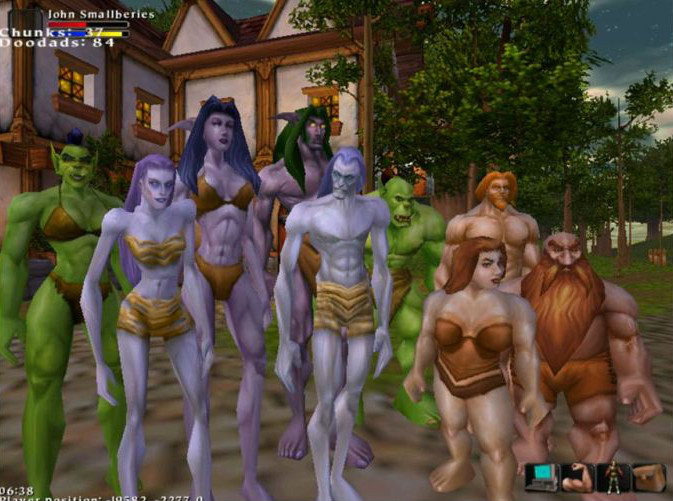
Why does everyone have a six pack? -
Login Screen
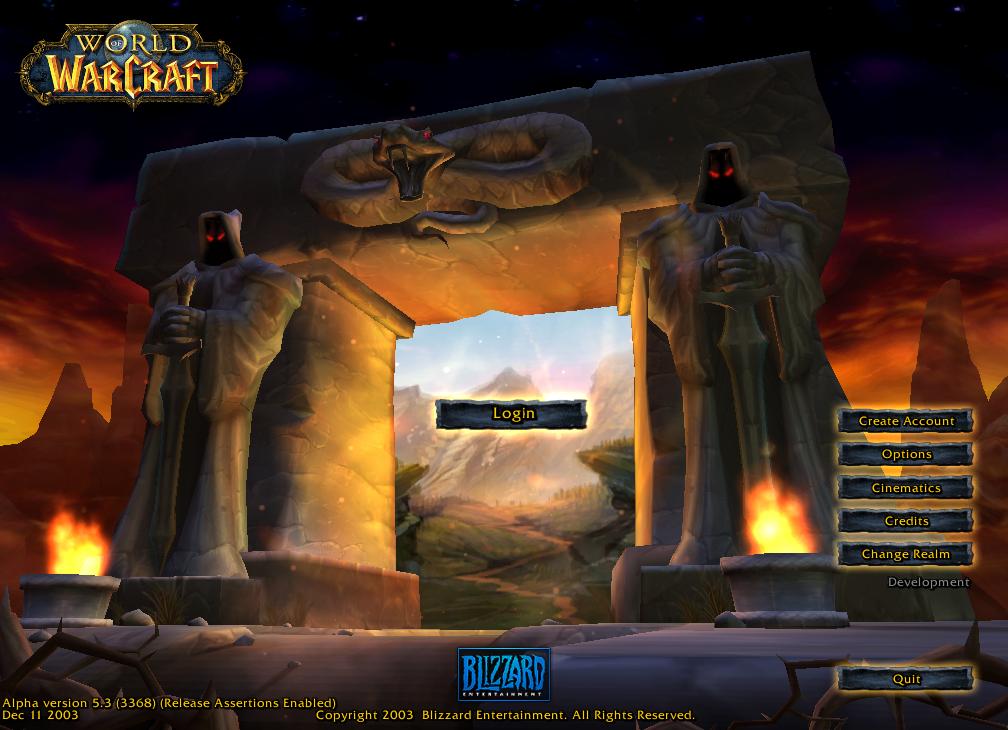
Classic. -
Wyvern
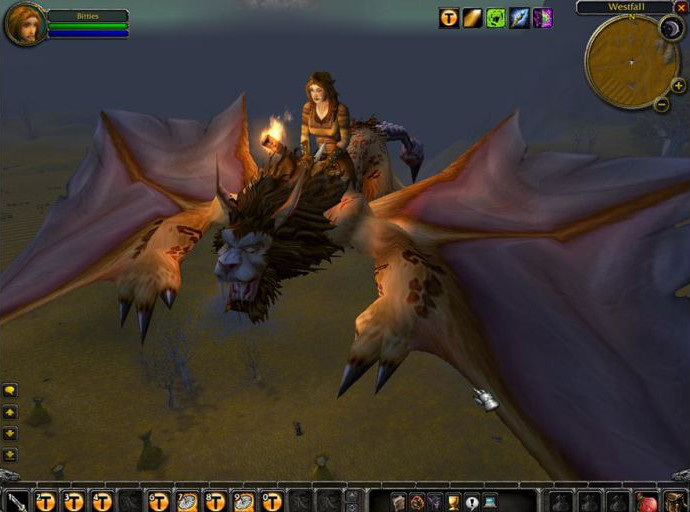
A flight path test from the early days. -
Westfall #2
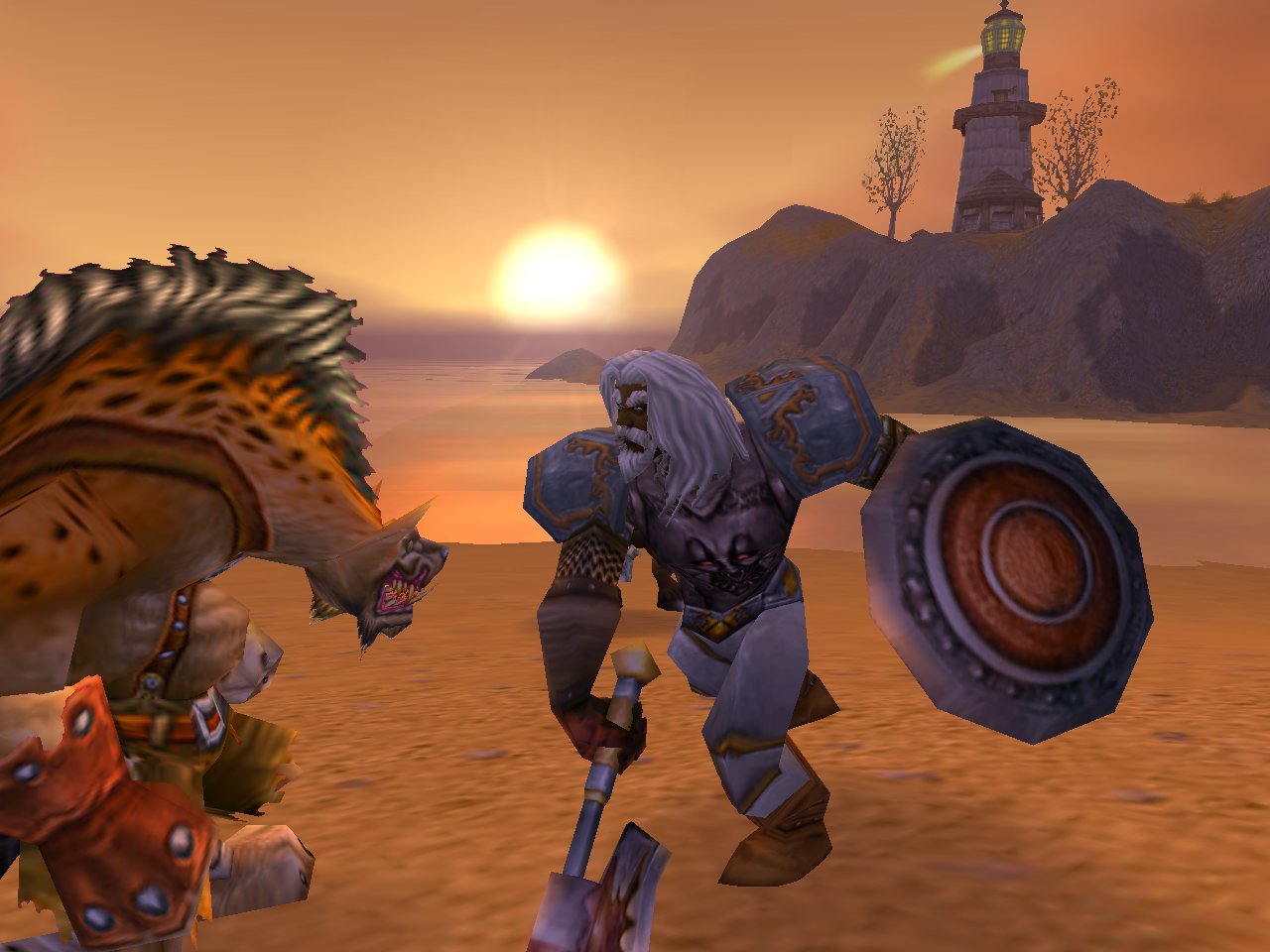
The player almost looks like a Vrykul. -
The Dark Portal
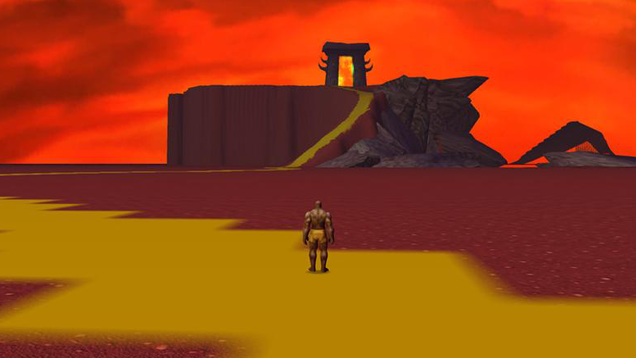
I dare you to walk through it.
